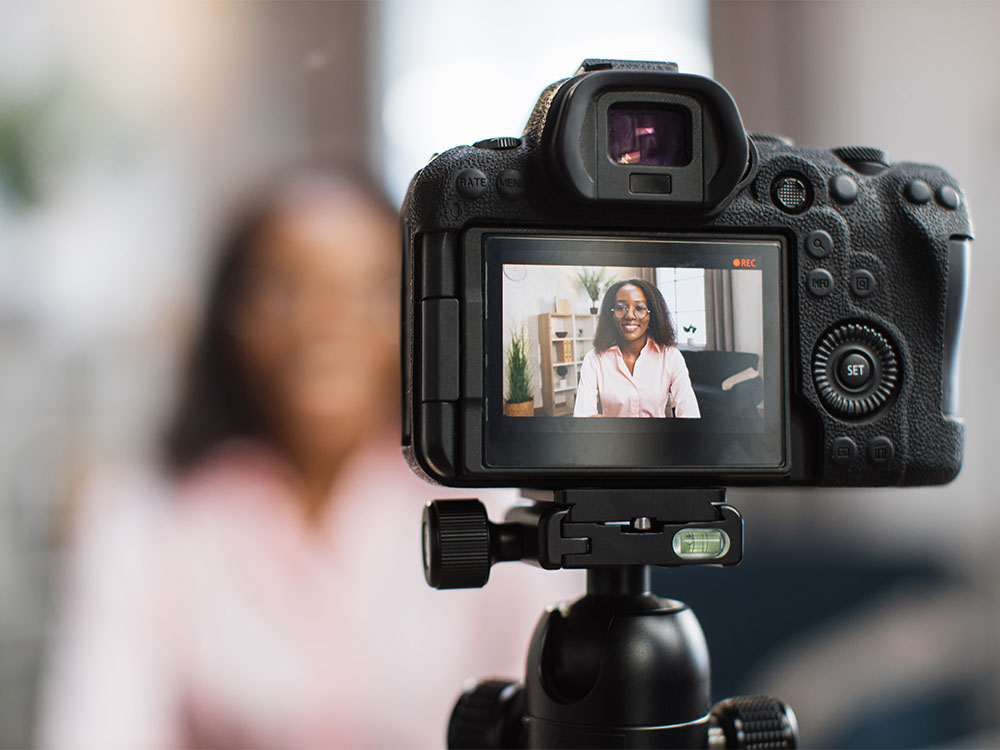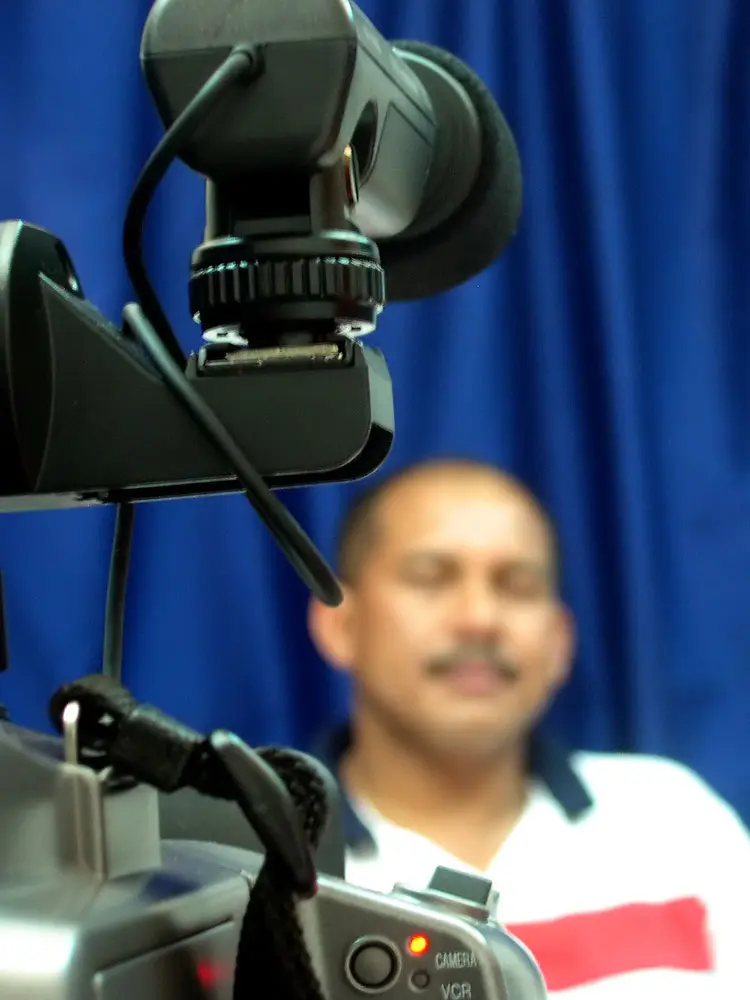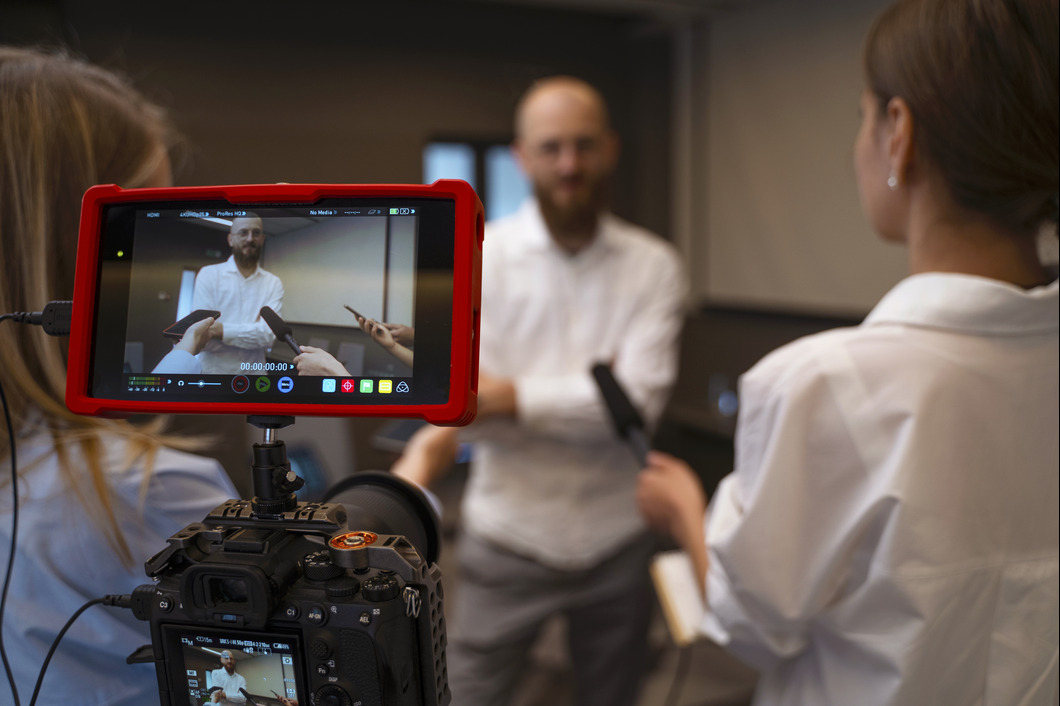The Importance of Lawful Video Clip Depositions in Modern Legal Services: What You Need to Know
Lawful video clip depositions have actually ended up being vital in today's legal landscape. They supply a multidimensional sight of witness statements that conventional records simply can not match. By catching both non-verbal and spoken communication, these depositions improve the general understanding of a witness's credibility. Nonetheless, the performance of video clip depositions depends upon numerous factors, consisting of compliance with legal standards and ideal techniques (legal video depositions). Exploring these elements exposes their true significance in modern-day lawful services
What Are Legal Video Clip Depositions?
Legal video clip depositions act as an essential device in the lawsuits procedure. They entail taping witness statements in a video format, recording both non-verbal and spoken communication. This approach permits lawyers to record the attitude, expressions, and responses of witnesses, offering a richer context for the statement. Commonly performed in a regulated atmosphere, these depositions are led by lawyers who ask questions while a court press reporter documents the discussion. The resulting video can be important for test prep work, as it allows lawyers to analyze the credibility of witnesses and improve their techniques. Additionally, legal video depositions can be used in various legal contexts, varying from civil disputes to criminal cases. The aesthetic and auditory elements of video clip depositions enhance the discussion of proof, making it an important part in the modern lawful landscape. In general, they add considerably to the efficiency and performance of lawful process.

Advantages of Video Depositions Over Typical Techniques
Video depositions offer countless benefits contrasted to typical techniques of taking witness testaments. One significant benefit is the capability to record both audio and aesthetic elements, offering a much more extensive document of the witness's declarations. This dual format enhances quality and permits lawyers to reference particular subtleties throughout trial prep work. Furthermore, video clip depositions assist in remote engagement, making it much easier for witnesses who may be not available for in-person appearances due to geographical constraints or health issues.Moreover, video clip depositions can quicken the general deposition procedure, reducing the moment and prices connected with traveling and logistics. They additionally improve ease of access, as videotaped depositions can be quickly shared amongst legal groups and referenced any time. This convenience contributes to better case management and preparation. On the whole, video clip depositions stand for a contemporary, effective technique to collecting witness statements, aligning with the progressing demands of the legal career.
The Duty of Body Language and Tone in Testimonies

In legal video depositions, body movement and tone play important roles in communicating a witness's credibility and reliability. Nonverbal cues can give insights right into a witness's emotion, influencing how their statement is viewed. Recognizing the effect of these aspects is essential for jurors and lawyers alike when reviewing the reliability of a statement.
Nonverbal Communication Insights
While verbal interaction is usually emphasized in lawful testaments, nonverbal cues such as body language and tone play a vital duty in conveying credibility and emotion. Viewers of depositions may note that a witness's posture, gestures, and face expressions can considerably influence perceptions of dependability. Regular eye contact may signal self-confidence, while avoiding stare could suggest deceit or discomfort. In a similar way, the intonation-- its volume, pitch, and rate-- can give feelings of genuineness or uncertainty. Attorneys need to be in harmony with these nonverbal signals, as they typically provide vital context that complements talked words. Comprehending these subtleties can boost the performance of depositions and affect the end result of lawful process.
Emotional Tone Impact
The emotional tone conveyed during legal testaments considerably affects just how a witness is regarded. Body movement, vocal inflections, and faces play essential functions in shaping the narrative of a testament. A witness displaying confidence through consistent eye call and a tranquil tone can infuse a feeling of reliability and engagement. Conversely, signs of anxiety, such as fidgeting or an unsteady voice, might cause suspicion concerning their account. The nuances of psychological expression can influence the analysis of truths, making it important for lawful professionals to acknowledge these signs. In video clip depositions, the aesthetic and acoustic elements incorporate, highlighting the value of emotional tone in conveying genuineness and reliability within the lawful process.
Integrity and Reliability
An essential aspect in establishing reliability and trustworthiness during testimonies depends on Extra resources the witness's body language and intonation. Onlookers commonly depend on non-verbal cues-- such as eye contact, pose, and motions-- to assess a witness's sincerity. A witness who keeps eye call and presents open body language might be regarded as more sincere and trustworthy than one who avoids eye contact or appears shut off. In addition, tone of voice plays an important duty; a constant, calm tone can enhance the trustworthiness of the testimony, while variations in pitch or quantity might raise questions. Inevitably, the combination of body movement and singing tone substantially affects exactly how a witness's declarations are obtained and translated in a legal context.
Finest Practices for Conducting Video Clip Depositions
Carrying out video clip depositions needs careful preparation and implementation to assure a clear and reliable presentation of statement. It is important to pick a silent, well-lit area to lessen interruptions and safe and secure optimal video top quality. The tools ought to be tested beforehand, consisting of electronic cameras, microphones, and illumination, to avoid technical issues throughout the deposition.Next, events included should assess the format and procedures ahead of time, making sure that everyone comprehends their duties. The deponent should be briefed on the process, consisting of exactly how to respond plainly and concisely.Additionally, preserving a professional behavior throughout the session is crucial. This consists of avoiding talking over each other and verifying that all concerns are guided appropriately. It is critical to record the deposition in a style that allows for very easy playback and testimonial, protecting the stability of the statement for future use.
Lawful Considerations and Conformity Issues
How do legal factors to consider and conformity issues impact the performance of video clip depositions? Legal professionals have to navigate an intricate landscape of laws, making certain that video clip depositions stick to jurisdictional rules and standards. Compliance with laws worrying personal privacy, approval, and taping approaches is essential. For instance, acquiring explicit consent from all events entailed is needed to prevent lawful repercussions.Additionally, the admissibility of video evidence in court can depend upon conformity with procedural needs. Making sure that the equipment utilized fulfills technical requirements is also crucial, as inadequate high quality can threaten the deposition's reliability.Moreover, lawyers should recognize any kind of specific state regulations that control video depositions, as these can vary significantly. Failure to resolve these factors to consider can not only endanger the stability of the deposition however her explanation additionally affect the overall instance strategy, ultimately affecting the client's legal results.
Exactly How Video Depositions Impact Court Perception
While video clip depositions can function as powerful devices in legal procedures, their influence on court perception is substantial. The aesthetic and auditory elements of video clip recordings offer jurors with a more thorough understanding of witness attitude, credibility, and emotional responses. This multimedia technique can improve the jurors' capability to examine the reliability of testimony compared to conventional text-based transcripts.Moreover, video depositions allow jurors to observe body movement, tone of voice, and faces, every one of which can affect their analysis of the witness's declarations. The existence of a witness on screen can humanize them, fostering empathy and link, which might guide jurors' point of views. On the other hand, a witness who shows up unreliable or incredibly elusive on video clip might cause unfavorable assumptions that affect a court's decision. Ultimately, the dynamic nature of video depositions plays an essential function in forming how jurors translate proof and reach their verdicts.
The Future of Video Depositions in Legal Method
As advancements in technology proceed to reshape the lawful landscape, the future of video clip depositions is positioned for considerable advancement. Advancements such as artificial intelligence, digital reality, and improved video conferencing devices are expected to streamline the deposition process and boost availability. Lawyers might use AI-driven analytics to evaluate witness credibility and instance strength extra effectively.Moreover, the combination of online reality might permit courts to experience immersive simulations of depositions, offering much deeper context and understanding. In addition, the trend toward remote depositions is most likely to persist, supplying greater flexibility for customers and lawyers alike.As remote job comes to be progressively normalized, video clip depositions will likely come to be typical method, decreasing expenses and time restrictions related to traditional approaches. On the whole, these technological innovations guarantee to boost the effectiveness, effectiveness, and accessibility of video depositions in legal practice, eventually changing exactly how lawyers get ready for test.
Frequently Asked Inquiries
Just How Much Do Legal Video Clip Depositions Commonly Price?

Can Video Depositions Be Made Use Of in Any Type Of Kind Of Situation?
Video depositions can be used in different kinds of situations, including civil, criminal, and family members law. Their flexibility enables attorneys to present witness statements efficiently, adapting to the particular demands of different lawful scenarios.
What Devices Is Needed for a Video Deposition?
To conduct a video clip deposition, important equipment includes a high-quality camera, microphone, lighting, and a reliable recording device. Additionally, a computer system with editing and enhancing software program may be essential for post-production and formatting the final video clip.
For how long Does a Common Video Clip Deposition Last?
A common video deposition lasts between 2 to 4 hours, depending upon the intricacy of the case and the variety of questions presented. Prolonged sessions might happen, however breaks are generally included for participant comfort.

Are Video Depositions Admissible in Court?
Video clip depositions are typically admissible in court, supplied they follow legal requirements and regulations of proof. Their usage improves quality and protects witness statement, aiding in the judicial process during tests and hearings. Legal video depositions have become look at this website necessary in today's lawful landscape. In addition, legal video clip depositions can be used in different legal contexts, varying from civil conflicts to criminal situations. In addition, video clip depositions assist in remote participation, making it less complicated for witnesses who may be not available for in-person appearances due to geographical constraints or health issues.Moreover, video depositions can speed up the total deposition process, lowering the time and prices connected with travel and logistics. Ensuring that the devices made use of fulfills technological standards is also vital, as inadequate top quality can undermine the deposition's reliability.Moreover, lawyers must be aware of any type of certain state legislations that govern video depositions, as these can differ greatly. Additionally, the pattern towards remote depositions is likely to linger, using better flexibility for attorneys and customers alike.As remote work becomes increasingly normalized, video depositions will likely come to be standard practice, minimizing expenses and time restraints connected with standard methods.